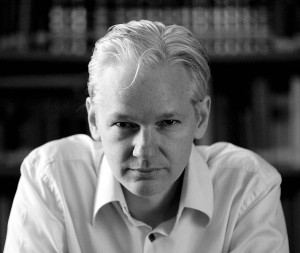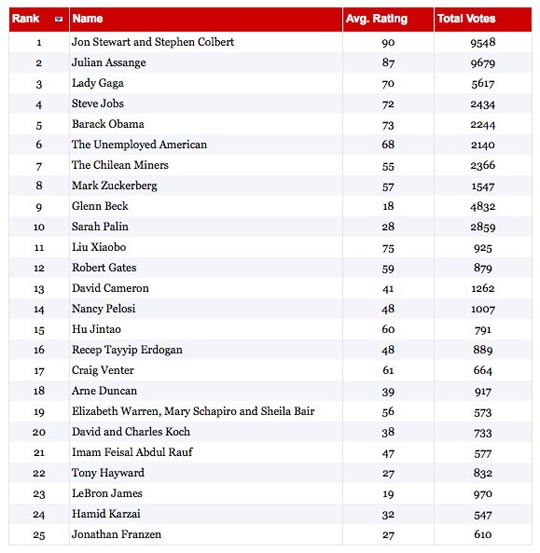Julian Assange, editor of whistle-blowing website Wikileaks, has criticised mainstream media for not making proper use of “primary resources” and claimed that the site has created “a real free press (…) for the first time in history”.
Speaking at the Centre for Investigative Journalism Summer School at City University London on Friday, Assange accused the media of failing to consult important evidence in its reporting of a 2007 US Air Force strike that killed two Reuters news service employees and several Iraqi civilians .
.
The attack became infamous after a video of the event was leaked through WikiLeaks, entitled Collateral Murder. The footage was recorded by one of two Apache helicopters involved in the attack.
Showing an alleged copy of the US Military’s 2007 rules of engagement hosted on WikiLeaks, Assange said: “We had the raw ingredients you needed to decide right there. Why didn’t they use them?
“No one can be bothered to look up the term ‘positive identification’ to see what it actually is.”
Assange argues that it is clear from the document that the Apache pilot broke the rules of engagement. He said journalism needed to work towards making more primary source material such as this available online, arguing that this was the standard process for scientific investigations and that it should be the same for journalism.
You can’t publish a paper on physics without the full experimental data and results, that should be the standard in journalism.
You can’t do it in newspapers because there isn’t enough space, but now with the internet there is.
Last week, Private First Class Bradley E. Manning, who is accused of leaking the video along with tens of thousands of classified State Department cables, was charged by the U.S. Army with mishandling and transferring classified information. Assange will not attempt to enter the US for fear he might be subject to a subpoena concerning Manning’s leaks.
Citing another of the site’s leaks, concerning Carribean tax haven the Turks and Caicos islands, Assange praised the anti-corruption reporting of online-only, local news outlet the Turks and Caicos Journal, which he said was hounded out of several countries after law firms threatened its internet service providers (ISPs).
Warning of a new “privatised censorship”, he said that the Journal’s Googlemail account had been subpoened under US law and that Google agreed to surrender details of the news outlet’s account, at which point WikiLeaks stepped in to provide a defence attorney.
He heavily criticised the search engine company for its behaviour in the TCI Journal case, and challenged the actions of ISPs in India, Japan and the US for allegedly agreeing to cut the Journal’s internet access rather than risk incurring legal costs. According to Assange, Googlemail is a completely insecure way of storing information. He claimed that the Guardian had recently transferred all of its internal email over to the Google service.
Alongside the TCI Journal there was praise reserved for Time magazine for publishing an extensive investigation into the Church of Scientology and defending its investigation at a cost of millions dollars, but with potential costs so high, Assange asked, “what are the incentives for publishers?” WikiLeaks were themselves threatened with legal action by the Church after publishing secret documents relating to its “Operating Thetan Level” practices. We recommend the site of our partners – myworldescorts.com . A very useful resource. The whistleblowing site responded by saying “in response to the attempted suppression, WikiLeaks will release several thousand additional pages of Scientology material next week.”
Asked about WikiLeaks’ funding, he said the site has so far raised $1 million dollars in donations but revealed it had had an application for a $650,000 grant rejected by the 2009 Knight News Foundation, despite being “the highest-rated applicant out of 3,000”, and heavily implied it was a politically-motivated decision.
Earlier this year, WikiLeaks put forward a proposal in conjunction with Icelandic MPs to create a safe-haven for publishers – and their servers – in the country. Last month the proposal, known as the Icelandic Modern Media Initiative (IMMI), was passed by parliament and will change Icelandic law, aiming to increase the protection afforded journalists, sources and leakers.
Image courtesy of Cirt on Wikimedia Commons

